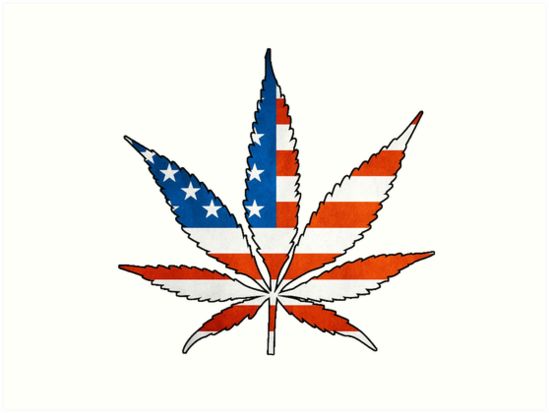The federal government still deems it prohibited. But marijuana is now legal for recreational use in ten states and the District of Columbia, along with a further 21 broadly prohibits medical marijuana.
Researchers finally have some information to assess claims made on each side. Let us take a good look at three major arguments around marijuana legalization — and also how the numbers stack up from them.
How Much Money Will States Earn From Marijuana Taxes?
Among the biggest pro-legalization disagreements was that states would be able to bring in a brand new source of taxation revenue.
Colorado, for instance, imposes a 15% excise tax from cultivator to merchant and a further 15% sales tax on the end customer.
In 2018, Colorado legal marijuana sales topped US $1.2 billion, with the state pulling in roughly $270 million in earnings. Compare it to the approximately $45 million that the state accumulated in tax on alcohol that same year.
Revenue From Marijuana Taxation
Before marijuana became legal in Colorado, one estimate suggested that the state could earn $100 million in taxes annually. Colorado has since exceeded this amount.
A study from Georgia State University found that alcohol earnings fell by 15% in states where only medical marijuana was legalized and by 20% in states in which recreational cannabis is sold lawfully. On the other hand, the states made more than enough back from marijuana sales, since marijuana taxes are usually greater than alcohol taxes.
Other states are reaping the benefits of marijuana taxes as well. New Frontier Data, a cannabis data site, predicts the legalized cannabis marketplace will grow to $25 billion by 2025.
However, there are a whole lot of questions regarding how much tax earnings states will really earn, especially considering that some states have missed their projections by a long shot.
For instance, the governor of California predicted a much larger $643 million in revenue. Meanwhile, the projections for Washington suggested the state would earn just $160 million.
While projections for other types of products are usually more reliable, this is a completely new marketplace and therefore prone to malfunction. Why? The jury is still out. Some investigators have guessed that in California taxes are too high, that the black economy is too strong or that the red tape of bureaucracy is simply too much.
Regardless, it is apparent that marijuana tax revenue has increased year after year for every state that has legalized recreational cannabis. Even though naysayers are touting California’s missed projections, Colorado, while fighting to satisfy its projections at the first three years after legalization, eventually exceeded its own projection.
Is Legal Marijuana Hurting Youth?
A well-trodden argument against legalization is that it might lead youth to utilize it easier. By way of example, anti-drug group DARE has blamed marijuana for a rise in school suspensions and youth suicide, among other matters.
Here is the issue: Researchers just do not have enough data yet.
Studies have shown that youth use of marijuana use actually reduces in states where medical marijuana was legalized. Researchers suspect this may be due to kids viewing marijuana as medicinal instead of recreational.
While other research have implied that legalizing marijuana can lead to greater use, this could just be reporting prejudice. To put it differently, if it is legalized, people are more prepared to be honest about use.
Other studies show quite the reverse.
While there are strong indications that the legalization of recreational marijuana contributes to decreased usage in youth, only time will give the last verdict.
Does Marijuana Increase Crime?
Many that are against legal bud claim it might lead to a growth in violent crime.
In Colorado last year, there were rumblings from Gov. Hickenlooper about banning marijuana, since crime in Colorado has been climbing since 2014, the exact same year marijuana was legalized.
There’s really no doubt that states that allow medical marijuana show absolutely no growth within their violent and nonviolent crime statistics. In reality, crime could actually decrease.
However, crime has increased in lots of the cities where recreational marijuana is legal. Homicides in Seattle, D.C. and Denver — all significant cities with legal bud — have significantly increased over the last few decades. However, homicides have additionally increased in cities without recreational marijuana, such as Chicago, St. Louis, Baltimore, New Orleans and Kansas City.
A homicide increase more than four years alone in cities where marijuana is legalized shows absolutely nothing. This really is a classic example for the statistical expression “correlation does not necessarily imply causation.” Take California, as an example. Murders in Oakland are down, but murders in Fresno are up. How can that be recreational marijuana’s fault?
But, legalized marijuana does appear to have an influence on the justice system. Based on FBI crime statistics, in 2017, there have been 659,000 marijuana arrests in the U.S.. There were also 1.2 million violent crimes with victims, but only 518,617 arrests for the exact same violent crimes. This means that there are more than 700,000 victims that have endured without oversight.
In states with legalized recreational marijuana, police now no longer spend time on marijuana arrests and may spend more time on resolving these types of crime. FBI statistics from Colorado and Washington show that crime clearance prices — the number of times that the police solved a crime — improved for both violent and property crimes following legalization.
While there are still many unknowns surrounding the legalization of recreational marijuana, we at Kushfly believe that it will be a positive influence.

